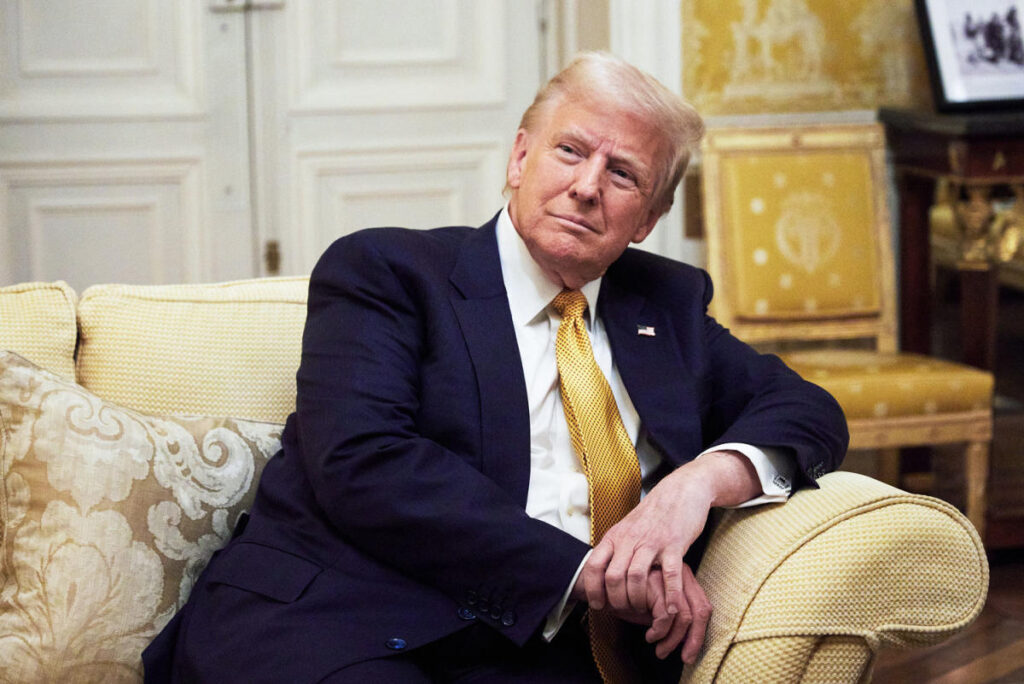In a buoyant first postelection news conference at his Mar-a-Lago estate, President-elect Donald Trump expressed a markedly different tone compared to his previous election cycle in 2016. Trump noted that many individuals who were once adversaries are now extending friendly gestures towards him, particularly in the tech industry. “Everybody wants to be my friend,” Trump remarked, highlighting meetings with notable figures such as Apple CEO Tim Cook and Google CEO Sundar Pichai. He appeared to take pleasure in this change, suggesting a newfound willingness among major players to engage with his administration positively, contrasting with the earlier tensions that pervaded his first election victory.
Reflecting on his past administration, Trump characterized the previous four years as a time when “everybody was fighting me.” However, he emphasized that the current atmosphere is distinctly different, with individuals eager to collaborate rather than confront him. Trump regarded this shift as an advantageous development, suggesting that a cooperative spirit is essential for governance and business relationships. His relationships with top tech executives, including plans for meetings with others like Amazon CEO Jeff Bezos, signal a potential restructuring of interactions moving forward under his presidency.
Trump’s relationships with Big Tech CEOs have been fraught over the years, particularly following their criticisms of his policies while in office, which included a controversial executive order on immigration. This antagonism led to social media platforms banning him after the January 6 insurrection, prompting Trump to engage in legal battles with companies like Facebook, Twitter, and Google. However, the current thawing of relations between these tech leaders and Trump might indicate a strategic shifting of allegiances, reflecting a political realignment within the tech community that may aim to influence Trump’s second term.
The significant personnel changes within Trump’s inner circle further illustrate this point. Tesla CEO Elon Musk has been appointed to a prominent position, leading a Department of Government Efficiency alongside other notable figures. In addition to Musk, Trump has also brought venture capitalist David Sacks and technologist Jacob Helberg into advisory roles, which suggests an ongoing effort to consolidate support from the tech sector while leveraging their expertise to shape policy. This alignment may be indicative of a broader rightward trend among tech leaders who are now actively engaging with Trump’s administration.
During the news conference, Trump also commented on various social and political issues, including a willingness to pardon New York Mayor Eric Adams, who faces charges related to long-standing bribery and wire fraud allegations. He suggested that the treatment of Adams was “unfair,” though he acknowledged that he would need to review the case further before making a final decision. Trump’s remarks extended to significant incidents involving crime and safety, notably highlighting a recent murder case that garnered public attention. His strong condemnation of the violence reflects an ongoing concern for public safety, an issue that resonates widely with voters.
Additionally, Trump indicated he might reconsider reinstating a ban on TikTok, citing a favorable impression of the platform and its impact on young voters during the election. His reference to winning the youth vote by a substantial margin suggests an acknowledgment of TikTok’s role in connecting with that demographic, thereby leveraging social media as a valuable political tool. Furthermore, Trump expressed his intent to challenge what he views as inaccurate polling data from The Des Moines Register, showcasing his ongoing combative stance toward media narratives. Unlike the more extensive outreach seen in prior election cycles, Trump’s current engagement strategy appears more focused as he begins laying the groundwork for his administration’s direction and initiatives.

